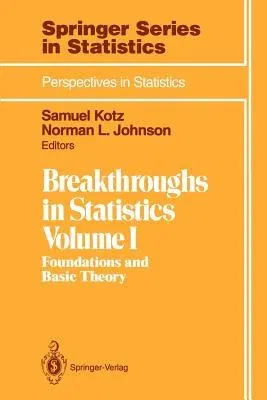Breakthroughs in Statistics: Foundations and Basic Theory (1992. Corr. 2nd Printing 1993)Paperback - 1992. Corr. 2nd Printing 1993, 11 June 1993

Qty
1
Turbo
Ships in 2 - 3 days
In Stock
Free Delivery
Cash on Delivery
15 Days
Free Returns
Secure Checkout
Part of Series
Springer Series in Statistics / Perspectives in Statistics
Part of Series
Perspectives in Statistics
Part of Series
Springer Series in Statistics
Part of Series
Springer Statistics
Print Length
632 pages
Language
English
Publisher
Springer
Date Published
11 Jun 1993
ISBN-10
0387940375
ISBN-13
9780387940373
Description
Product Details
Book Edition:
1992. Corr. 2nd Printing 1993
Book Format:
Paperback
Country of Origin:
US
Date Published:
11 June 1993
Dimensions:
23.39 x
15.6 x
3.45 cm
ISBN-10:
0387940375
ISBN-13:
9780387940373
Language:
English
Location:
New York, NY
Pages:
632
Publisher:
Series:
Weight:
934.4 gm

